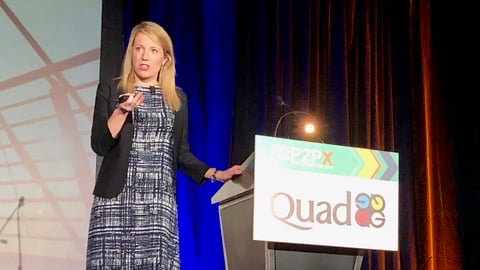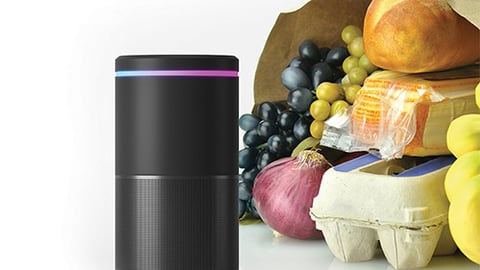Tech Takes on Grocery Health & Wellness
Seemingly every conversation about food centers on nutrition. Many people want to eat better. Some have certain taste or ingredient preferences. Others are following specific diets.
More than 90% of Americans sometimes or always seek healthier food options, but less than a third say that supermarkets are doing enough, according to research from U.K.-based food technology company Spoon Guru.
Key Takeaways
- More grocers are taking responsibility for helping customers find healthy foods that align with their dietary preferences and requirements.
- For instance, Heinen’s has a chief medical officer and chief dietitian, a partnership with a local hospital, and a list of best practices, and is working on a proprietary app to take everything digital.
- Combining medical experience with data science, technology company Spoon Guru makes sense of unstructured data to provide accurate product details for retailers both in the store and online.
In a world where personalization has gained substantial traction in recent years, it has largely lagged behind in grocery. Netflix knows a viewer’s past preferences and recommends future shows. Spotify curates playlists based on listening habits. Social media makes like content easily discoverable. Yet most grocers can’t readily advocate vegan products or heart-healthy options for people with specific dietary needs or preferences.
The responsibility is at least partly on the retailer to help shoppers, and many are starting to use technology to do so.
“There’s a huge gap between what people would like to see compared to what experience they’re getting,” says Markus Stripf, co-CEO and founder of Spoon Guru. “The good news is there are now technology solutions, most of them AI-based technology solutions, that are readily available that help consumers find whatever it is they’re looking for, reliably, accurately and quickly.”
A Grocer’s Vision
For Heinen’s, which operates 23 stores in the Cleveland and Chicago-area markets, catering to health-conscious customers has been a work in progress for years, and now the grocer is adding a technology component to really bring its services to the next level.
“Ten years ago is when we had this vision, and we said, ‘We want to be relevant in health and wellness,’” explains Chris Foltz, chief innovation officer for Cleveland-based Heinen’s. “As a grocer, we believe we have an accountability, and it’s not our accountability to sell food, but to source great food, and then to help customers understand what we have so they can make the best decisions for themselves.”
Heinen’s hired a chief medical officer with his own practice, Dr. Tood Pesek; hired a chief dietitian, Melanie Jatsek; and partnered with Cleveland’s University Hospitals to create best practices for eating healthier.
-
These “7 Amazing Food Scripts” act at a basic level as guidelines that are then tailored to what customers need or are already doing. They are:
- Eat your greens, as many as you can.
- Include the rainbow: two vegetables, one fruit per day.
- Substitute plant proteins as often as you can.
- Dose with omega-3 fats every day.
- Choose whole grains, preferably sprouted.
- Remember functional foods, mostly herbs and a little dark chocolate.
- Watch your sugar and salt; minimize added sugar and limit sodium to 2,300 milligrams per day.
These food scripts have already been implemented with in-store programming, health coaches and meal kits, but Heinen’s is now in the process of taking everything digital and launching its Fx app.
“We have this giant opportunity ahead of us, and if we would just think out of the box a little bit, and we would think about how technology can help us, we could not only really please customers, but we could open up a whole avenue of enormous potential for sales and to be relevant,” Foltz says.
The Fx app, nearing prototype stage, will home in on personalization, beginning first with asking a customer’s taste preferences, and then filtering foods that may work for him or her.
The next step dives a little deeper, whether a customer is looking for help with energy, sleep, managing blood sugar, weight loss, mental clarity or a number of other goals.
Working with its chief medical officer and University Hospitals, Heinen’s can take the technology one step further, and doctors can enter health conditions or recommendations for a patient. The patient can then see food options on the app that align with the doctor’s care.
“We’ve been talking with our hospital partner, and the doctor can go on [the app] and say, ‘You know what, I want them to do omega-3s every day, and I want them to eat two fruits and one vegetable every day,’ whatever it may be,” Foltz notes. “The patient can come into the app, and they can download those recipes or items, and the app will also have an educational component.”
The Importance of Accuracy
Heinen’s is developing a proprietary app with its technology partner, but it’s not the only grocer that wants to help carry the torch for customers’ health and wellness.
Spoon Guru has partnered with Walmart-owned Jet.com in the United States and grocers around the world to help shoppers easily discover foods and create meals that align with their preferences and requirements.
On average today, each shopper has 3.3 dietary preferences, and 64% of the world’s population follows some sort of exclusion diet, according to Spoon Guru’s research.
Spoon Guru makes sense of unstructured data to provide accurate product details both in the store and online.
"We have defined a couple hundred dietary attributes, which are defined by our team of medics and dietitians, and we have a very complicated, very sophisticated algorithm that basically assigns dietary attributes to the product catalog our partner sends us,” Stripf says. “That additional insight, that level of augmentation, allows them to respond to specific search inquiries much more effectively.”
Most retailers with Spoon Guru have started with their ecommerce channels. If customers type in gluten-free pizza sauce or nut-free butters, they’ll get an accurate representation of the products the grocer offers that fit these requirements. If they choose a pizza sauce that isn’t gluten-free, it’s flagged as not compliant, and the website provides alternative options.
“Accuracy is our No. 1 metric, and we also give accuracy guarantees to our partners,” Stripf says. “For somebody with a nut allergy that relies on our search engine to find them suitable products, if you get it wrong once, that’s one time too many if that person ends up in an ambulance or worse.”
Stripf adds that Spoon Guru is positioned as a technology company, but its real value proposition lies in the fact that it combines medical experience with data science. The company has a team of in-house dietitians and nutritionists, as well as an advisory panel consisting of medics and allergy specialists.
At the Store Level
At Heinen’s, shoppers are likely walking into the store with the Fx app and searching for the appropriate foods with the help of digital store tours or in-store employees.
According to Foltz, the grocer has invested in employees, and particularly “red coats,” the name given to chefs, since they now wear red coats, in the prepared food department.“This is chef-prepared food,” he says. “We put red coats on our chefs and did training on the food and combining it into meals, instead of just listening to what they want and then fulfilling their order.”
For search engine and product attribute accuracy, ecommerce sounds like a fitting start, but the possibilities of taking this technology into brick and mortar are there as well.
“It can obviously be integrated within native apps. It can be integrated with scan-and-go technology. It can be integrated with in-store kiosks,” observes Stripf. “It can even be used to help staff, employees, that work in physical stores provide much more accurate and reliable customer service by being able to understand whether they actually have gluten-free sausages or not, and by being able to understand where the customer can find them.”
The digital shelf edge can also take personalizing the in-store shopping experience to a whole new level. Through readers or a retailer app, shoppers can scan the bar code of a product to see whether it’s suitable for them, and if not, what suitable alternatives exist.
Gone are the days of putting on your reading glasses, squinting your eyes and flipping over the package to analyze the nutrition label and ingredient list to see whether a product aligns with your dietary preferences or restrictions.








